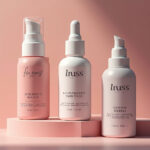Understanding the Divide: Premium vs. Affordable
In today’s market, consumers are often faced with choices between premium and affordable products. This decision can be particularly challenging when it comes to items that affect our health, well-being, or daily lives. But how do we determine when the extra cost is worth it? In this article, we will explore the differences between premium and affordable options, and when efficacy really matters.
What Does ‘Premium’ Mean?
Premium products are typically associated with higher price points and often come with a perception of superior quality. These items may boast better ingredients, more advanced technology, or a more robust manufacturing process. For example, a premium skincare product may contain rare, high-quality ingredients known for their efficacy, while an affordable counterpart might rely on more common, cost-effective components.
Why Choose Affordable Products?
On the other hand, affordable products offer a budget-friendly option that can be appealing to many consumers. These items often provide decent quality and functionality without breaking the bank. For instance, many affordable household cleaners effectively remove dirt and grime, making them suitable for everyday use. Additionally, some consumers may not notice a significant difference in performance when using affordable products compared to their premium counterparts.
When Efficacy Matters Most
While both premium and affordable options have their place, there are specific scenarios where efficacy is paramount. Here are a few factors to consider:
- Health and Safety: In areas concerning health, such as pharmaceuticals or medical devices, efficacy should never be compromised. Premium options may be more reliable due to stricter quality control and better research backing their effectiveness.
- Long-Term Investment: Sometimes, spending more on a premium product can save money in the long run. For example, a high-quality appliance may last longer and perform better, reducing the need for frequent replacements.
- Special Needs: For individuals with specific conditions or sensitivities, premium products designed for those needs may be necessary. Considerations such as hypoallergenic ingredients in skincare can make a significant difference.
Finding a Balance
Ultimately, the choice between premium and affordable products depends on individual priorities. It’s essential to evaluate the specific context and needs before making a purchase. Here are some tips to help you strike the right balance:
- Do your research: Read reviews and compare ingredients or features.
- Identify your priorities: Determine what aspects are most important to you, whether it’s quality, price, or brand reputation.
- Experiment: Sometimes, trying both types can help you figure out what works best for you.
Conclusion
In the end, the choice between premium and affordable products boils down to personal values and circumstances. While premium products often deliver superior efficacy, affordable options can be surprisingly effective as well. By being informed and understanding your unique needs, you can make choices that enhance your life without overspending. Remember, it’s not always about the price tag; it’s about what works best for you!




